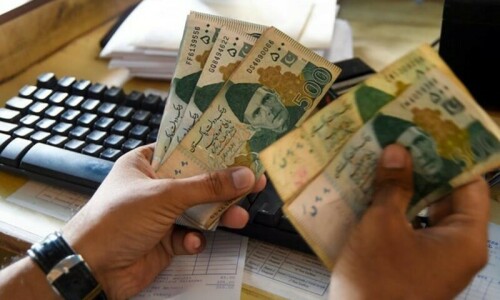Cash-strapped Pakistan experienced its highest-ever single-year increase in tax exemptions or concessions, soaring by 73.24%, or Rs1.64 trillion, in the outgoing fiscal year.
The Pakistan Economic Survey 2023-24, unveiled by Finance Minister Muhammad Aurangzeb, revealed that the Federal Board of Revenue (FBR) granted a record Rs3.879 trillion in FY24, up from Rs2.239 trillion in FY23. Despite the government’s pledge to gradually reduce exemptions, the cost of tax exemptions has risen for the sixth consecutive year.
The substantial increase in tax exemption costs is primarily attributed to the Rs1.338 trillion waiver on domestically supplied and imported petroleum, oil, and lubricant (POL) products. Notably, this is not an exemption, as the federal government has already collected the maximum amount through the petroleum development levy (PDL), resulting in negligible costs for the federal government.
The International Monetary Fund (IMF) has expressed concern about these tax waivers and has urged the government to abolish them. The budget for 2024-25 will reveal the actual number of exemptions that will be eliminated to meet the FBR’s ambitious revenue targets.
The value of tax exemptions has been steadily increasing over the years. It was Rs540.98 billion in FY18, rose to Rs972.4 billion in FY19, to Rs1.49 trillion in FY20, slightly eased to Rs1.314 trillion in FY21, and then surged again to Rs1.757 trillion in FY22. These tax concessions were extended to all sectors to promote industrialization. Tax exemptions represent the revenues foregone by the state under different categories for various industries and other groups.
Sales tax exemptions on petroleum products led to a loss of Rs1.257 trillion to the national exchequer in FY24. To offset this loss, the government raised approximately the same amount through the PDL. The net loss is borne by the provinces, as PDL is not available for distribution under the divisible pool and is retained by the center.
In FY24, the cost of exempting sales tax at the import stage on POL products was reported at Rs81.22 billion.
To reduce exemption costs, the government plans to increase the sales tax on cellular phones. The cost of mobile phone exemptions was reported as Rs33.057 billion in FY24. The import of mobile phones in the first 10 months of FY24 was $1.462 billion, up from $473.28 million in the same period last year, representing a 209% increase.
Income tax exemptions rose to Rs476.96 billion in FY24 from Rs423.894 billion in FY23, an increase of 12.51%. This increase was mainly due to the total exemption on income under Part 1 of the Second Schedule of the Income Tax Ordinance, costing the exchequer Rs293.46 billion in FY24 from Rs232.39 billion over the previous year, an increase of 26.27%.
Additionally, the increase was attributed to the exemption on government income, costing Rs57.52 billion in FY24. The tax credit cost extended to businesspersons in income tax decreased by 53.24% to Rs24.374 billion in FY24 from Rs52.13 billion last year.
Overall, sales tax exemptions increased by 120.86% to Rs2.858 trillion in FY24 from Rs1.294 trillion in FY23. However, the government raised the general sales tax rate from 17% to 18% to generate additional revenue from consumers and has also withdrawn exemptions on other products since March 1, 2023.
The cost of zero-rated exemptions under the fifth schedule rose to Rs206.05 billion in FY24 from Rs139.44 billion in FY23, an increase of 47.76%. This increase is due to the government relaxing the zero-rated regimes for five export-oriented sectors and some other sectors. In 2018-19, the projected revenue loss from these five sectors was Rs87 billion.




